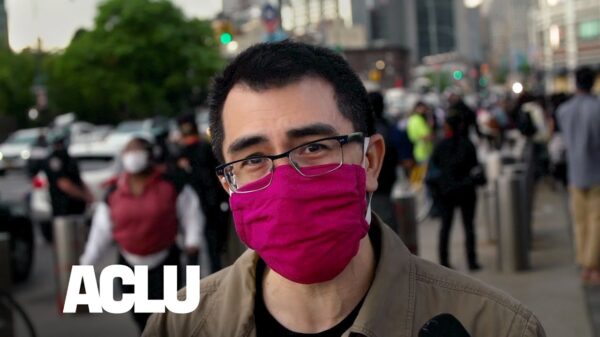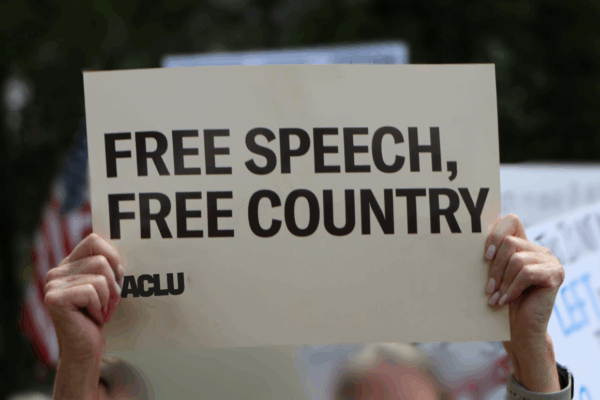El derecho a protestar es fundamental para nuestra democracia y está consagrado en la Primera Enmienda de la Constitución de los Estados Unidos. En respuesta a la muerte de George Floyd en manos de la policía de Minneapolis, un sinnúmero de personas en todo el país ha tomado las calles para demandar justicia racial y la terminación de la brutalidad policiaca y el racismo sistémico en contra de las personas de color.
Haz clic aquí para descargar en PDF.
Es importante conocer tus derechos y permanecer seguro al protestar, especialmente en estos tiempos de COVID-19. En este video -tomado el fin de semana en una protesta en Brooklyn, Nueva York-, Emerson Sykes, del equipo de abogados del proyecto Voz, Privacidad y Tecnología (Speech, Privacy, & Technology Project) de la ACLU, comparte información importante sobre cómo protegerse a sí mismo y a los demás al momento de protestar y los derechos que tienes al interactuar con la policía.
Esto es lo que el video señala tener en cuenta cuando salgas a protestar
1. El derecho de protesta es un derecho humano fundamental garantizado por la Constitución de los Estados Unidos y la Primera Enmienda.
2. Si te detienen, pregunta si eres libre de irte. Si la policía responde que sí, aléjate calmadamente.
3. Tienes derecho a grabar. El derecho a protestar incluye el derecho a grabar, incluyendo grabar a la policía haciendo su trabajo.
4. La policía puede ordenar a las personas que dejen de interferir en las operaciones policiales legítimas, pero la grabación de video desde una distancia segura no es interferencia.
5. Si eres detenido, la policía no puede quitarte o confiscar ningún video o fotografía sin una orden judicial.
6. Si estás videograbando, toma en cuenta que en algunos estados el audio se rige de forma diferente a las imágenes. Sin embargo, las imágenes y las imágenes con audio están siempre y completamente protegidas por la Primera Enmienda.
7. El principal trabajo de la policía en una protesta es proteger tu derecho a protestar y mitigar cualquier amenaza de violencia.
8. Si eres arrestado, no digas nada. Solicita un abogado inmediatamente. No firmes nada y no acuerdes nada sin un abogado presente.
9. Si eres arrestado, demanda tu derecho a una llamada telefónica local. Si llamas a un abogado para recibir consejo legal, la policía no tiene permiso de escucharte.
10. La policía no puede borrar información de tu dispositivo electrónico, en ninguna circunstancia.
Consulta nuestra Guía para Conocer tus Derechos al Protestar Haz clic aquí para descargar una copia de tus Derechos al Protestar.
Cómo protestar en una pandemia
Related Content

Conoce tus derechos al protestar contra la brutalidad policiaca

Press Statement: ACLU of Georgia Applauds Atlanta City Council Resolution Aimed at Limiting Rap Lyrics as Evidence in Court
Stay Informed
Sign up to be the first to hear about how to take action.
By completing this form, I agree to receive occasional emails per the terms of the ACLU’s privacy statement.
By completing this form, I agree to receive occasional emails per the terms of the ACLU’s privacy statement.

